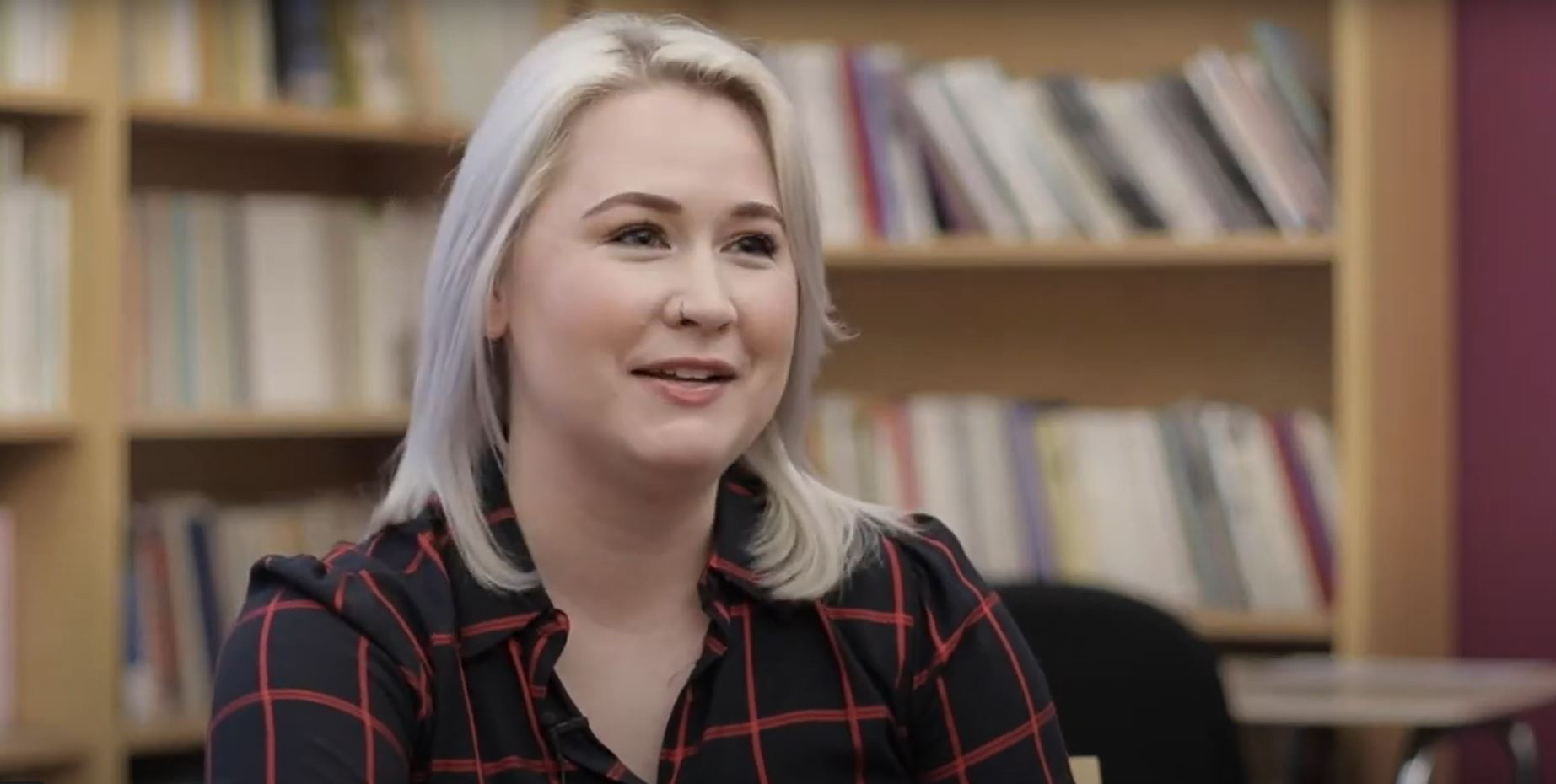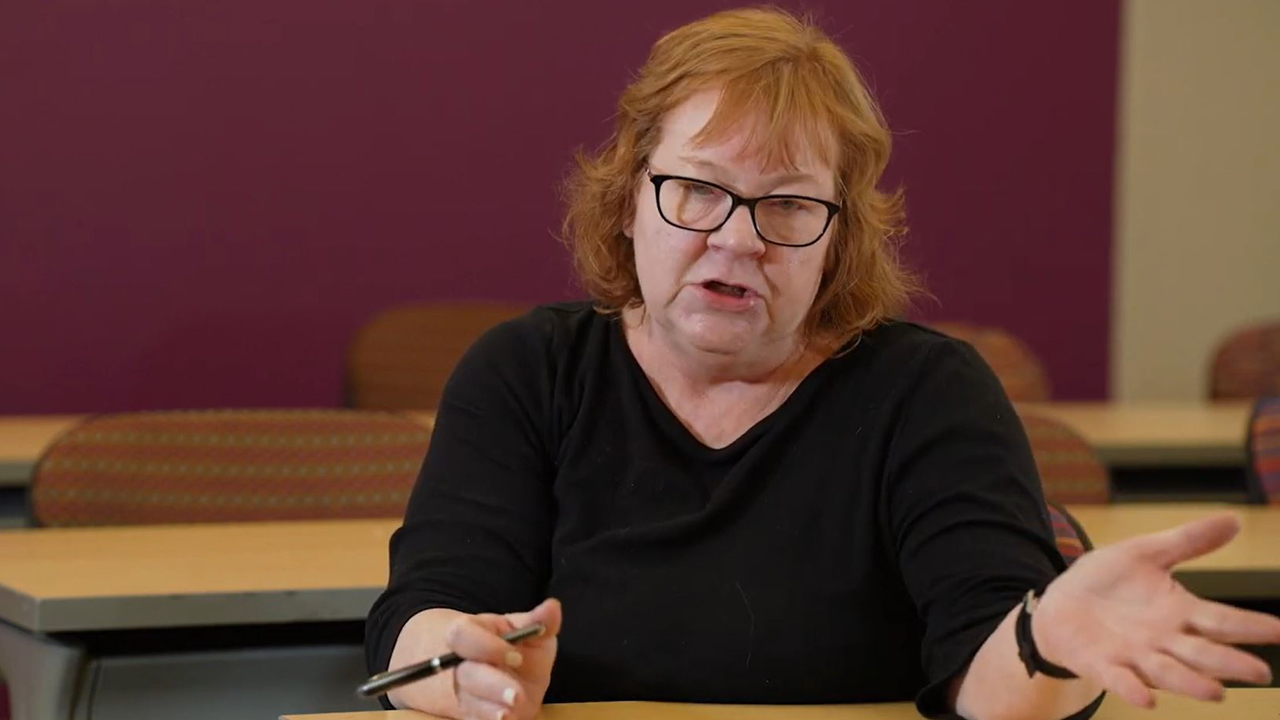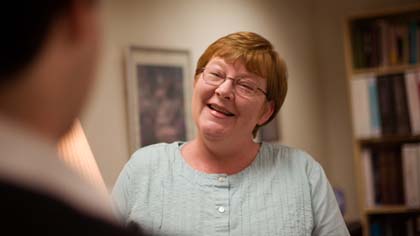Psychology

Why This Degree is For You
Unlock The Human Equation
Understand human motivation and interaction and discover how they apply to the real world.
Psychology, Health and Human Services
Program Type
Locations/Format
Cost
Undergraduate
Tuition & Fees
Requirements
121 credits to earn a degree.
Quick Links
B.A. in Psychology
Shorten your path to your master's degree.
Students who qualify may take up to 9 graduate credits, which apply to both the bachelor's
degree in Psychology and the M.S. in Counseling Psychology or the M.S. in Industrial and Organizational Psychology. Learn more about our accelerated options.
Studying psychology can open doors to an exciting, fascinating career, and this Bachelor of Arts program exposes you to the theories, methods and applied aspects of the field, offering you the practical skills training necessary to enter the job market or continue on to graduate studies.
A two-semester sequence of both statistics and research methods allows you to investigate their related concepts together, so you can gain hands-on experience in researching and then apply statistics to analyze what you find. Your senior project will give you the opportunity to showcase what you've learned through an internship, research project, presentation and more.


Frequently Asked Questions
- You can use it as a building block for a graduate degree in the field: a master’s or a doctorate in psychology or social work, for example.
- You can use it as a foundation for graduate study in other areas: sociology, business, statistics or even law school.
- You can find a job related to your psychology major: case management, community relations, crisis work, grant writing, data analysis, recruitment, sales, public relations or substance abuse counseling.
- Finally, you can use a bachelor’s degree in psychology to prepare you for almost any non-technical job. A bachelor’s degree in psychology provides students with a broad background in liberal education. Students will gain critical skills in oral and written communication, active listening, teamwork, leadership, critical thinking and problem solving. And that is exactly what most employers are looking for. For helpful tips in choosing a career path, please visit the Career and Internship Center.
The Wagman Applied Psychology Laboratory, part of the Division of Applied Behavioral Sciences, supports faculty and student research projects. Students interested in gaining research experience can sometimes work with faculty or graduate students on projects and also serve as research participants for research projects that others are conducting. If you are interested in pursuing research, Applied Behavioral Sciences faculty biographies to get a sense if there is a faculty member that you would like to work with. Any time during your tenure at UBalt, you may contact one of these faculty members to see if there is space available on his or her research team, and to see if you are suited for the current project that the faculty member is working on. This option is beneficial for all students, but especially for those in pursuit of a doctoral degree in psychology.
Psychology majors often find internships that let them apply their skills and knowledge in a real world setting. Internships not only provide a window into certain kinds of jobs, but they also boost your resume. For a listing of internships in the local area, log into UBworks via MyUBalt.
It varies from student to student depending on your work and personal duties. A bachelor’s degree requires a minimum of 120 credits and can be completed in four years for entering freshman (average of 15 credits fall/spring or 12 credits fall/spring and 3-6 credits summer) and two years for transfer students with associate degrees.
More important than finishing as quickly as possible, though, is finishing as competently as possible. It’s best to balance your work, school and other responsibilities to allow sufficient time to study for your courses. It is recommended that you spend about two hours outside of class for every hour that you spend in class. For that reason, you might want to consider a part-time class schedule if you have a full-time job so that you have the best chance of success in your coursework.


What Our Graduates Do
Our graduates pursue careers as varied as family service worker, employment recruiter, technical writer and college admissions recruiter, or go on to attain advanced degrees in equally varied fields, such as behavioral medicine, criminal justice, nursing and human resource management.
With your bachelor's degree, you'll be prepared for such positions as:
Common Roles
- Community Health Educator
- Data Analyst
- Case Manager
- Human Resources Specialist
- Rehab Specialist
- Organization Consultant
- Substance Abuse Counselor
- Crisis Intervention Counselor

Unexpected Turn Leads to New Opportunities
Read Full StoryThe University of Baltimore has afforded me these opportunities because of what they see in me.
Prepare for a Graduate Degree
Our graduates have been accepted into top master's and Ph.D. programs at universities across the country. Check out where some of our Psychology graduates have continued their study:
- University of Maryland, College Park (Ph.D. in Public Health)
- Penn State (Ph.D. in Social Psychology)
- University of Missouri, Kansas City (Ph.D. in Counseling)
- California State University, Fullerton (M.S. in Clinical Psychology)
- McGill University (Ph.D. in Communications)
- University of Washington (Ph.D. in Social Psychology)
- Towson University (M.S. in Experimental Psychology)
- Bowie State University (M.A. in School Psychology)
- University of Maryland, Baltimore (School of Social Work)
- University of Baltimore (M.S. in Applied Psychology)
- Georgia State University (Ph.D. in Counseling)
Graduate psychology programs offered at The University of Baltimore include:
- M.S. in Counseling Psychology
- M.S. in Industrial and Organizational Psychology
- Graduate Certificate in Professional Counseling Studies
- Graduate Certificate in Global Industrial and Organizational Psychology.
Build your Network
To become a member of the UBalt chapter of Psi Chi, The International Society in Psychology: contact John Gasparini at 410.837.5281.








